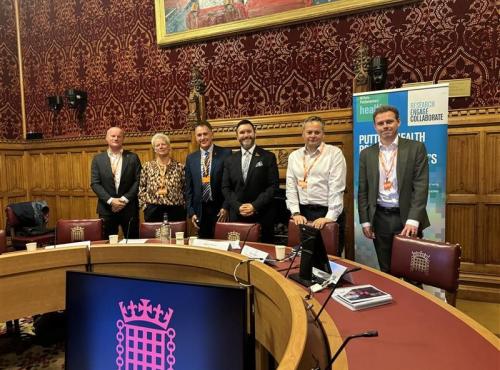Getting it right for public protection – how can we reform healthcare professional regulation in the public interest?
Alan Clamp, CEO of the Professional Standard Authority explains why now is the time to influence the future of healthcare professional regulation.
The upcoming Health and Care Bill has taken up significant airtime in the health sector in recent months. However, the Department of Health and Social Care (DHSC) is now separately consulting on major reforms to the powers and governance of the healthcare professional regulators.
Proposals in the current policy consultation include a brand-new approach for dealing with concerns about healthcare professionals outside of a public hearing, as well the removal of large swathes of detailed operating procedures from legislation and into rules which regulators will be able to amend themselves. Regulators’ governing councils will also be replaced with new unitary boards including both executive and non-executive members, and regulators will be a bound by a consistent set of duties – of cooperation, transparency and proportionality.
These changes will not be included in a Bill but will instead be taken forward using section 60 orders to amend existing legislation. The General Medical Council is first in line with draft legislation expected later this year. However, the outcome of the public consultation closing on 16th June will be key in shaping the policy direction of the reforms.
So why does all of this matter?
Regulation may seem like a dry topic, but how professionals are regulated is key in ensuring we have a workforce that provides high quality and safe care to patients and service users.
There is widespread agreement that current legislation is no longer fit for purpose. It is outdated, cumbersome to change, and confusing to both professionals and the public. It also doesn’t always support the changes taking place within the health service such as the shift to team-based working and multi-disciplinary care.
The PSA oversees ten regulators all with different legislation and powers. This includes the largest regulators of doctors and nurses, the General Medical Council and the Nursing and Midwifery Council, through to the smaller regulators including the General Chiropractic Council as well as the new regulator, Social Work England, which opened its doors in December 2019.
Are these Government reforms a good thing?
It’s definitely good news that the Government is modernising healthcare professional regulation. The PSA has called for reform and we support much of what is in the consultation, some of which draws on our own proposals. Indeed, we have suggested that more radical simplification of the regulatory system is needed. This may now be on the horizon with the powers proposed for the Secretary of State to make changes to the number of regulators and which professions are regulated in the upcoming Health and Care Bill.
With the current consultation, however, there are some key areas where we think change is needed to ensure that, as well as greater flexibility and agility for regulators, the reforms will prioritise protection of the public.
A key issue for the PSA and many we have spoken to during this consultation is the balance between flexibility and accountability. As it stands, regulators will have powers to resolve complaints about professionals outside of public panel hearings if the registrant agrees. However, under current proposals, unlike decisions made by panels, these cases won’t be subject to the PSA’s independent appeal powers if the outcome doesn’t protect the public.
In addition, regulators will be able to make changes to the rules that outline their operating procedures with no independent oversight. Currently most rule changes need to be approved by the Privy Council. Whilst we think that increased flexibility is good, it’s our view that there should be some independent checks to make sure that rules protect the public and don’t lead to unjustifiable inconsistencies in approach across regulators. The Law Commissions in their review of the legislation of the healthcare professional regulators in 2014 proposed this role for the PSA and we would support being given these powers now.
We’ve laid out our three key areas for change to the current reforms in our recent briefing Three things to get right for public protection.
Although there is no legislation at this stage, we urge parliamentarians to look at the consultation and the proposals in it. This is a rare chance to shape the future of healthcare professional regulation and it’s important that it receives the scrutiny and attention it deserves.
Editor’s note:
The Professional Standard Authority is the oversight body for the ten health and care professional regulators in the UK.




